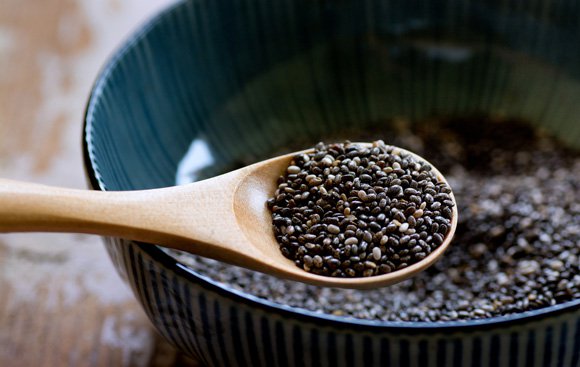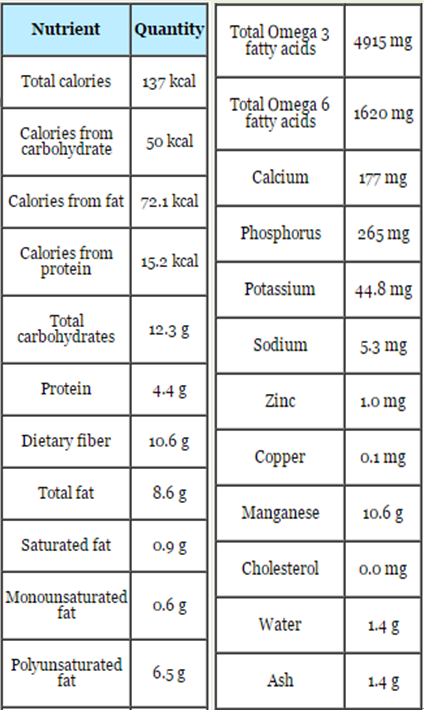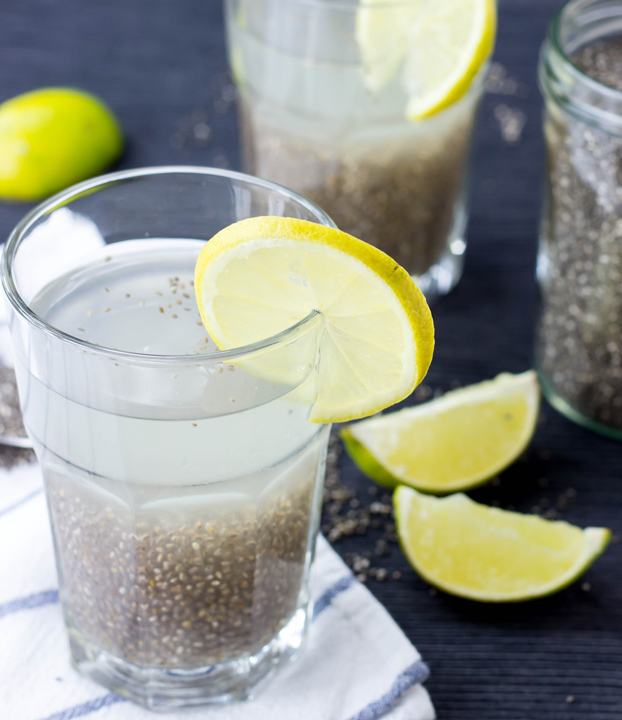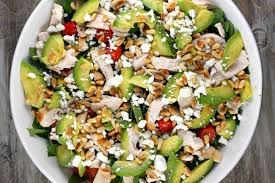Chia seeds, a species of flowering plant in the mint family originally grown in Mexico and Guatemala, are highly valued for their medicinal and nutritional properties. Chia seeds pack such a nutritional punch that pregnant women should consider adding them to their diet, because eating a healthy diet is more important than ever when you're pregnant. Consuming chia seeds in pregnancy may benefit the baby’s development, and the mother’s health as well. Consult your doctor first if you are not sure of adding chia seeds to your pregnancy diet.

Possible Health Benefits of Eating Chia Seeds During Pregnancy
1. Rich Source of Omega-3 Fatty Acids
Chia seeds, especially if they are milled, are a rich source of Omega-3 fatty acids needed for brain health and development for your baby. However, it’s important to remember that the Omega-3s in plants are mostly alpha linolenic acid (ALA), so you’ll still want to include fatty fish in your diet or take a DHA supplement if you are vegan as well.
2. Strong Skeleton
Many people are unaware that chia seeds contain five times as much calcium as milk, and calcium intake is vital to your baby’s skeletal development, especially during the last trimester. Eating chia seeds also provides boron, another essential and important nutrient for healthy bones.
3. Iron
Just one little tablespoon of chia seeds will give you 7%-9% of your recommended daily amount of iron. Iron is needed for healthy red blood cells that transport oxygen throughout the body. An increase in iron is critical during pregnancy to accommodate the increase in blood flow and volume needed to help baby supply their own red blood cells. Anemia or low levels of iron is common in pregnant women, especially in the last trimester.
4. Energy Boost
Chia seeds slow down the body’s process of converting carbohydrates and sugars into energy. This slower process, along with the high protein content, results in a sustained energy boost. Consuming chia seeds during pregnancy can provide you with more energy, while reducing the risk for pre-eclampsia, excessive weight gain, and gestational diabetes.
5. Fiber
Chia seeds are a great source of insoluble fiber. This fiber adds bulk to your stool, which keeps bowel movements regular and helps pregnant women with constipation. It may also reduce your chances of developing gestational diabetes. Just 2 tablespoons of chia seeds will give you 38% of your recommended daily fiber, and with the benefit of being low in fat and carbs content.
6. Magnesium
Magnesium is important for many processes, including regulating blood sugar levels, blood pressure, and muscle and nerve function. Chia seeds are full of magnesium, just one ounce of chia seeds provides a whopping 30% of the recommended daily allowance, and eating chia seeds may reduce cramping, especially in the legs. Chia seeds may even reduce the chance of premature labor by reducing early uterus contractions.
Precautions
Though chia seeds are generally healthy snacks, the two possible side effects should be kept in mind.
High triglycerides: Blood contains several types of fat, including cholesterol and triglycerides. High triglyceride levels are unhealthy. Eating some types of chia seeds may increase triglycerides. If you have high triglycerides, stick with using a specific variety of chia called Salba. Consuming these chia seeds during pregnancy do not significantly increase triglyceride levels.
Prostate cancer: Chia includes a lot of alpha-linolenic acid, and research has suggested that high amounts of alpha-linolenic acid (ALA) in your diet may increase the risk of getting prostate cancer. This disease mainly exists among men. People who have prostate cancer or are at risk of getting it should avoid consuming large amounts of chia seeds.
The Nutrition Facts of Chia Seeds
The seeds are very low in sodium and cholesterol. Chia seeds are good sources of phosphorus, and calcium and also manganese and dietary fiber. The seeds are packed with complex carbohydrates (good carbs), essential fats, protein, and various vitamins and minerals. They are high in antioxidants which strengthen the immune system. The recommended consumption of chia seeds is 2 tablespoons per day during pregnancy. Below are the details regarding nutrients found in one ounce (approximately 28 g) of chia seeds.

How to Incorporate Chia Seeds into Your Diet During Pregnancy
You can eat the nutty-flavored chia seeds during pregnancy in many ways.
 Chia Fresca
Chia Fresca
A refreshing energy drink for those hot afternoons. Just take 2 cups of drinking water and squeeze a big lemon or lime in it. Add 2 tablespoons of chia seeds and sugar or honey as you want. Mix all the ingredients together in a suitable container and let cool in the fridge for a minimum of 2 to 3 hours. The seeds will absorb the water, and a gel-like substance will surround the seeds. You can add some lemon as decoration.
Chia Chicken and Spinach Salad
 Put them in the salads that are are easy-to-make and don’t require processing the vegetables, which makes the dish even more nutrient-dense. You can make a great salad by mixing a little spinach along with various greens, 1/2 cup of diced chicken, some sliced cherry tomato, 1/2 apple sliced, sliced avocado, and a quarter of a cup of feta and pine nuts. Mix these ingredients with 2 tablespoons of toasted chia seeds.
Put them in the salads that are are easy-to-make and don’t require processing the vegetables, which makes the dish even more nutrient-dense. You can make a great salad by mixing a little spinach along with various greens, 1/2 cup of diced chicken, some sliced cherry tomato, 1/2 apple sliced, sliced avocado, and a quarter of a cup of feta and pine nuts. Mix these ingredients with 2 tablespoons of toasted chia seeds.
 Chia Berry Smoothie
Chia Berry Smoothie
A berry smoothie with chia seeds is a tasty option for the moms-to-be. Add 1/2 cup vanilla yogurt, 1/2 cup orange juice, 1/2 banana and one cup frozen mixed berries to blender, then sprinkle chia seeds on top, and turn the blender on until the drink is smooth. Adding the chia seeds last can help prevent them from sticking to the blades of the blender.
Spiced Apple and Oatmeal with Chia
 This recipe is handy on those cold mornings. Just put 2/3 cup of oats and a chopped apple into the boiling water. When the apples have become soft, pour in some honey and sprinkle your oatmeal with a bit of cinnamon and ½ oz chia seeds. You can add some milk, rice, soy, or coconut if you want.
This recipe is handy on those cold mornings. Just put 2/3 cup of oats and a chopped apple into the boiling water. When the apples have become soft, pour in some honey and sprinkle your oatmeal with a bit of cinnamon and ½ oz chia seeds. You can add some milk, rice, soy, or coconut if you want.
